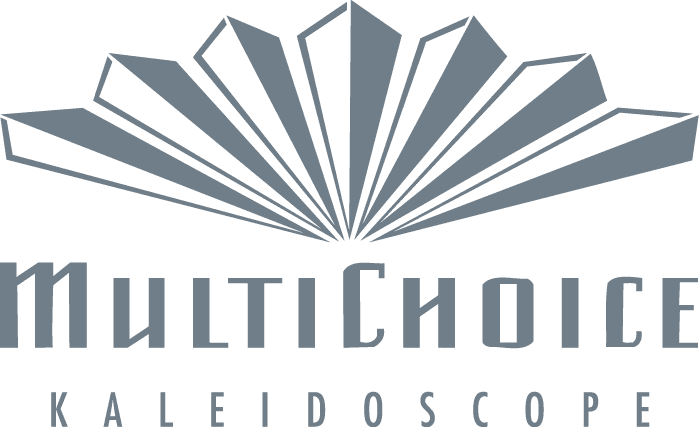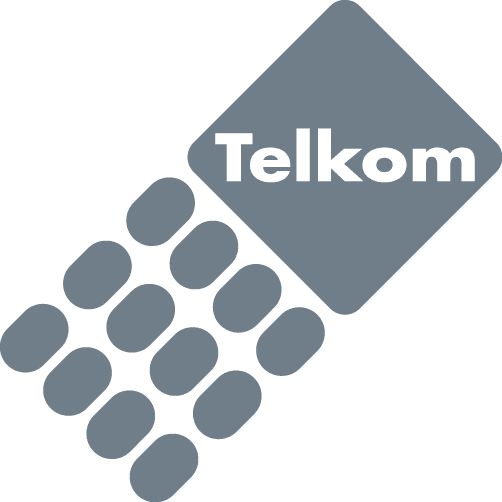Sales and Distribution in the hospitality, travel, and tourism sector, where customer satisfaction, connectivity, and flawless execution are the keys to success. Unlike so many businesses where goods are stationary, hospitality is a business that sells experiences, ephemeral, emotional and intensely personal.
This is what makes Sales management not just a department, but the heart of revenue generation, brand building, and guest retention. From luxury resorts to boutique hotels, and from destination marketing organisations to travel agencies, Sales Operations that work translate inquiries into bookings and bookings into loyal, current customers.
In hospitality and tourism, every touchpoint matters. Overdue group response, an untrained front desk agent or a disorganised CRM, and you can lose the difference between a five-star review and a missed opportunity. That’s why Sales Operations isn’t just an option, it’s a necessity. It simplifies the lead-to-booking process, empowers the sales organisation to be customer-centric, and connects marketing to operational delivery.
Lead Handling in Hospitality: Turning Inquiries into Confirmed Bookings
In hospitality and tourism, each question, whether for a family vacation, a corporate retreat, or a wedding venue, is a potential source of income. But with a weak lead-nurturing strategy in place, they tend to disappear as fast as they came. This is where Sales Operations is paramount. It offers the systems, tools, and tactics to make sure every lead is captured, qualified, followed up with, and converted.
Sales Management begins with visibility. You’ll receive inquiries from booking engines, social media, referral sites, travel agents, and even walk-ins. From there, a centralised CRM system can keep track of and organise every interaction. Sales Management ensures that leads are gathered and qualified by source, travel intent, and urgency.
For instance, a bride planning a destination wedding next summer enters with much different priorities than a tour operator in search of 100 rooms next month. Sales Operations coaches teams to recognise these subtleties and strike with customised proposals and deadlines.
Speed is also key. According to research, within five minutes of a traveller asking a question, your response rate drops considerably. Sales Operations achieves this by setting SLAs (Service-Level Agreements) and implementing follow-up workflows. From auto email replies to sales team alerts, the mission is simple: get prospects down your funnel like greased lightning.
Developing a High-Performance Sales Team in Tourism and Hospitality
A sleek lobby or beautiful resort setting may wow, but it’s your people that close the deal. And that’s why developing and retaining a high-performance sales team is the core of good Sales Management in hospitality and tourism.
From reservations agents to group sales coordinators, every employee who interacts with potential guests is a member of the revenue engine. Sales Management ensures that these representatives are responding by being proactive salespeople.
Sales Operations starts with hiring. You need team members who are a mix of empathetic, assertive and detail oriented. They should be able to invest, ask the right questions, and match up their services with that guest’s expectations. Sales Operations is front-loaded, and everyone is clear on what success looks like at the start, with role-playing for KPIs (e.g., Inquiry response time, Conversion Rate, Upsell performance).
Training is a continuous process. Sales Operations features both onboarding modules and product knowledge sessions, as well as objection handling workshops, and, yes, even some good old-fashioned hospitality role-playing. It helps sales teams build confidence and creates uniformity in all guest interactions. And whether you need to book a room, a tour or a complete event, the sales experience should reflect the professionalism and cordiality of the brand.
Now add a layer of motivation and accountability. Sales Operations power is reinforced with commissions, monthly performance reports and incentives. Weekly check-ins highlight areas where skills fall short, and feedback loops nudge staffers to improve.
By fostering an ownership culture where every team member takes responsibility and has a sense of pride in the product, the team is empowered to make great things happen every day, for themselves and our guests.
Sales Management Technology: Using Data and Automation to Boost Bookings
Technology is no longer an afterthought in an industry based on customer expectations and thin margins. Sales Management in hospitality & tourism relies significantly on the Rule of innovative use of CRM solutions, analytics dashboards, automation tools, and AI-empowered communications. These tools will never replace the human touch, but they are making the human touch faster, more innovative and more scalable.
The centre of tech-based Sales Management takes place at the CRM. Tools such as Salesforce Hospitality Cloud, Revinate, and HubSpot Hospitality enable teams to monitor all guest interactions, automate follow-ups, and personalise offers based on booking history or preferences. This information is not only gathered but also used. Sales Operations ensures that sales representatives know when to make contact, which message to convey, and how to close confidently.
Automation means never missing an opportunity. Sales Operations systems, for example, can initiate email sequences for individuals who left the site without booking, send reminders to follow up by phone, or send notes of thanks after a site visit. Gets the pipeline flowing with less manual labour all the time.
Sales Management also utilises reporting tools to track performance. Managers can view metrics such as current occupancy versus target, conversion rate per channel, and revenue per lead. Such intelligence drives strategy, whether it involves responding to competitive pricing plans or realigning marketing spend.
Even better, Sales Operations leverages tech to make it simple. If a guest makes their reservation via your website, calls your front desk, or emails your sales team, they should experience the same type of timely, on-brand communication.
Partnerships, Promotions, and Group Sales: Expanding Reach through Strategic Sales Management
In hospitality and tourism, growth is often not what you know but who you know. From working with local tour operators to events to partnerships with destination marketing organisations, Sales Management is responsible for implementing strategies aimed at partners and groups. On the outreach front, this is a sales Management area that is for early and persistent mutual benefit and planning.
Whereas Sales Operations begins with identifying a partner with high potential. These could be travelling agents, event planners, airlines, or even other hotels in a sister destination. The idea is to create value for both sides. Sales Operations teams create co-branded bundles, referral rewards, and promotions that resonate with mutual audiences. A luxury resort, for example, could team up with a private charter company to promote exclusive fly-and-stay packages.
Group sales, such as weddings, conferences, or team retreats, require a unique Set of Sales Operations workflows. These deals are high-value and intricate, involving long lead times and multiple decision-makers. Sales Management assigns specific representatives, designs proposal templates, and establishes chase and confirmation dates. This ensures that leads are executed correctly, maintaining the brand’s image.
Promotions are another powerful lever. Sales Operations uses analytics to identify demand gaps, such as mid-week detractions or shoulder seasons, and then develops targeted offers to fill those gaps. Discounts are promoted through email marketing, social media ads, and OTAs. The outcome is increased occupation, increased revenue sharing, and a larger market footprint.
Conclusion
Hospitality and tourism Sales Management is not just about selling rooms or tickets; it’s about selling experiences that generate long-term relationships and repeat referrals. When every part of the guest experience can spell success or failure, Sales Operations ensures that systemised processes are in place to meet and exceed expectations consistently.
From qualifying questions and promptly answering them, to developing great teams and letting data inform the plan, Sales Operations provides the structure needed to thrive in an industry where new is the norm. The top hospitality brands are not just marketing but also Sales Management. It also serves as a mechanism for accountability, transparency and scaling.
GET IN TOUCH WITH THE DIGITAL SCHOOL OF MARKETING
If you want to become a sales manager, you need to take our Sales Management Course. Follow this link for more information.
Frequently Asked Questions
Hospitality and tourism Sales Leadership is the systematic process by which the sales capacity of a property is maximised through establishing internal marketing goals and external marketing techniques, to secure guest or client patronage, as well as encouraging their loyalty. This means lead tracking, team training, CRM utilisation, performance analysis, and pipeline attendance are all a part of it. In an activity-based business, Sales Leadership is responsible for ensuring that each inquiry is handled professionally, follow-up is conducted regularly, and the expectations of guests are consistently exceeded.
Sales Leadership systemises lead follow-up and conversion to drive more bookings. In hospitality and tourism, requests may arrive from various channels, including online forms, telephone calls, travel agents, and social media. It’s Sales Leadership that ensures these leads are captured, organised, and, more importantly, responded to promptly and professionally. Sales Leadership establishes a procedure for sending nurturing leads and reminders, and then personalises offers using CRM solutions and their automation. Punctual replies and feedback all help to improve the likelihood of getting booked.
Technology is a driver in today’s Sales Management for hospitality and tourism, enabling the localisation of various processes in an efficient, scalable, and data-driven manner. This is where CRM systems come into play; they’re the software platforms teams use to monitor guest interactions, automate follow-up, and manage pipelines across various booking channels. Sales Leadership provides platforms such as Salesforce, HubSpot, or a custom industry solution to ensure that no lead is left behind and all conversations are tracked. Automation tips: Personalised email sequences, scheduling appointments, and fast replies are key to quickly converting leads.
Sales Leadership is necessary for group and event sales in the travel industry, where transactions are typically large, complex, and involve numerous approvers. These types of sales need a methodical approach and a follow-up plan, which is what Sales Leadership provides visibility and direction over. It dedicates specific team members to respond to RFPs from planners, corporations, or organisations, ensuring that everything, from proposal to site inspection to contract, moves along in a timely and organised manner. Sales Leadership has standard templates, CRM pipelines and scheduled reminders that avoid leaving deals in limbo or losing them in translation.
Sales leadership has a positive influence on guest experience and loyalty in the hospitality and tourism industries. If requests are professionally handled, responses are made, and follow-ups are customised, guests feel welcomed before they arrive. Sales Leadership ensures that teams are well-informed about guests’ preferences, needs, and expectations. This results in personalised options, transparent communication, and a cohesive booking process. Sales Management, meanwhile, ties the behaviour of the front-line staff to brand standards, ensuring that messaging remains consistent wherever the consumer interacts with it.
Yes, Sales Leadership is as critical for small hotels and tourism businesses wishing to grow as for any large corporate” Big box stores. Have whole departments dedicated to sales, but with clever Sales Leadership tactics, smaller companies can also make a big splash. It starts by organising lead sources, tracking interactions through basic CRM solutions, and setting up transparent follow-up agendas. Sales Leadership empowers small teams to work inquiries faster, respond quicker, and make more conversions, without getting overwhelmed.
.
Blog Categories
You might also like
- Why Your Sales Planning Needs To Be Nimble?
- Why website owners need to worry about conversion rates
- Why should you Become a Digital Sales Manager?
- Why every sales professional needs to understand digital marketing
- Why Sales Management Matters for Small Business Success
- Why leadership is important in a sales environment





















